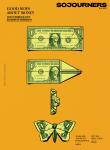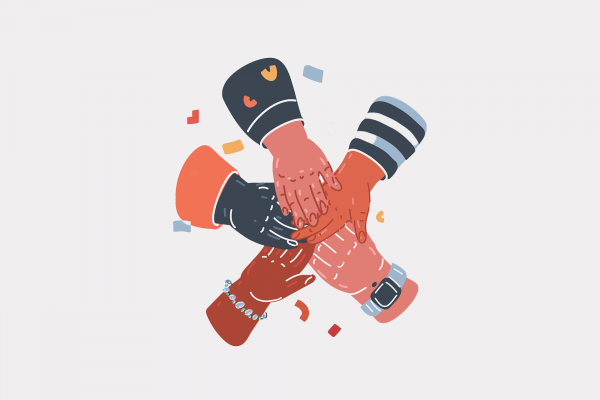TWO YEARS AGO I was introduced to De’Amon Harges, an expert in asset-based community development, by a mutual friend in Kansas City, who arranged to connect us due to our common pursuit of neighborhood flourishing. Harges described himself in his bio as a “roving listener.” When I later met him via Zoom, our conversation began with Harges saying: “José, tell me a story about yourself and your gifts.” I felt like I was being recruited into an ensemble of action heroes.
I responded by sharing my passion for being a collaborator and connector who supports people and neighborhood institutions around personal and collective flourishing. Our conversation was imbued with a cosmic energy as we swapped stories about our purpose in the world, as manifested through our purpose in the ’hood. Harges’ sacred curiosity made me feel buoyant, even seen and heard. In Harges, I connected with someone who bore witness to my gift in the world, and I was blessed to be awake to his gift when presented to me.
Ultimately, we live in a society that makes visible those gifts it deems most valuable. One only needs to search through the cultural happenings in New York City this fall. For instance, the New York Philharmonic hosts a stellar lineup of some of the best symphony orchestras in the world. In corporate America, CEOs will work to ensure their companies finish the last quarter well, to receive bonuses that average 74 percent of their annual salary. And paparazzi will chase Hollywood stars to produce tabloid fodder, showing how gifted people can be center stage even at our checkout counters.
Little positive attention, on the other hand, is paid to the many heroes in our ’hood, silently sharing their gifts in underfunded schools and nonprofits. Away from the everyday gaze will be the immigrant worker at the local bodega who was once a doctor back home, but somehow their credentials don’t count here. But resilient communities are only resilient when everyone’s contribution is celebrated and valued—hence, fostering an economy where every gift counts is an endeavor of justice.
New Community Church in Kansas City, Mo., works diligently to uncover people’s gifts in the most overlooked places in their neighborhood. Founding pastors Darryl and Stephanie Answer live and work in a zip code with the lowest life expectancy rate in the city, due to violence in the area and other factors. But for the Answers, there is no room for low expectations. For the past two summers, Stephanie and Darryl have mobilized young people through an initiative called “Eastside University.” The youth, who call themselves the “Game Changers,” interview people from the neighborhood, asking two key questions: What are your gifts? What do you want to learn? Once they uncovered these gifts, Eastside University provided opportunities for people to make a deposit into the “community cultural capital” fund. Artists received a stipend for teaching their art; a therapist provided mental health services to neighbors in need of care; caterers were provided with opportunities to share their culinary talents—all in all, many opportunities were provided for gifts to circulate in the community.
Once you seek participation in a gift sharing economy, Harges says, “you know it would be a sin to not invest in what’s beautiful. We’re going to celebrate what people are doing out in the world. It’s a reciprocal contribution, not hoarding all the giving for ourselves.”
What if we all practiced this form of generosity? Surely, we would foster an economy where grace would abound for all.

Got something to say about what you're reading? We value your feedback!







